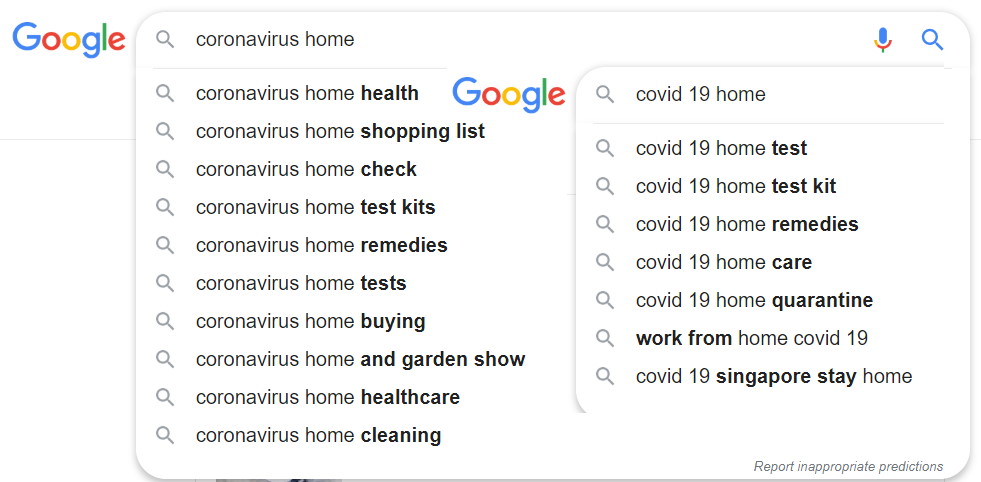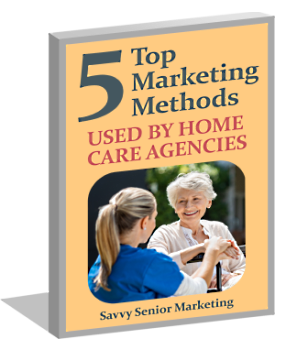Home care as a healthy alternative to residential facilities
Whatever the outcome of the coronavirus and its dangers, there are bound to be permanent changes in the practice of home care.
This could be helpful to home care practices – if they carry out the right marketing.
While the public reels at news of national sports events being cancelled, colleges turning to internet instruction, and admonitions made to avoid unnecessary travel and practice social distance, those caring for the elderly worry about their seniors’ exposure to the coronavirus.
Home care agencies who effectively communicate the advantages of home care in protecting one’s senior loved ones from the coronavirus – whether they are infected or have symptomatic causes – stand to benefit.
The National Association for Home Care & Hospice (NAHC) has stated that care in the home “is the most prudent approach” to isolating potentially infected individuals and providing other care.
Home care best for isolation - NAHC
“It is increasingly apparent that care in the home is the most prudent approach whether for purposes of isolating potentially infected individuals, providing direct virus-related care or addressing the risks of infection caused by avoidable exposure to other individuals. As you well know, the elderly and those with fragile health conditions are considered the highest risk members of our society.”
— National Association for Home Care & Hospice (NAHC)
Elderly are vulnerable to coronavirus
News of the coronavirus disease, otherwise known as COVID-19, spreading to a skilled nursing facility in Washington state highlighted the risk in senior care facilities. The advantage of home care services here is that the exposure in one’s own home is nearly eliminated when only one caregiver attends the client and there is typically no one else at home with whom to be exposed.
While alarming news reports seem to increase in intensity every day, one may argue that there is an exaggeration in the level of urgency concerning COVID-19. Neverthless, public perception in the safety of their seniors will rise to a heightened level going forward. From now on, the public will be more circumspect of the degree of health safety in residential living facilities. As is well known in the senior care industry, the elderly are particularly vulnerable to the coronavirus.
What’s important here is that home care services will be seen as a healthy alternative to senior communities. And it makes sense – our loved ones are exposed to more bacteria and viruses at any place where there are large numbers of people than they would at home. In the confines of one’s own residence, there is much less chance of catching an infection. Thus, if the elderly and children of the elderly who make these decisions are wavering as to whether their senior should go to a facility or stay home will be more likely than ever to choose a home care service.
There are no doubt market niches here of various kinds. For example, one of them would be quarantine services that provide home care for those who do not need hospitalization. The CDC has published an informative article, “Implementing Home Care and Isolation or Quarantine of People.”
In it, the CDC states,
People who are confirmed to have, or being evaluated for, MERS-CoV infection and do not require hospitalization for medical reasons may be cared for and isolated in a residential setting after a healthcare professional determines that the setting is suitable. Providers should contact their state or local health department to discuss home isolation, home quarantine, or other measures for close contacts and for patients who test positive for MERS-CoV, and to discuss criteria for discontinuing any such measures.
Reassure clients of their safety - HCAOA
“During times like these, useful information particularly on how our home care agencies are protecting clients as well as our workers, and preparing for emergencies, helps reduce anxiety. All of our home care agencies are encouraged to communicate routinely with clients and their families to let them know our emergency plans and what protocols we are following now to ensure the safety of client as well as our home care aides.”
— Home Care Association of America President Emma Dickison (HCAOA)
We’ve researched the way home care agencies market their services. And this is what we’ve found that the best home care agencies are using.
Click for your free guide, “5 Top Marketing Methods Used by Home Care Agencies.” Keep up with best practices. Don’t get left behind.
Keeping seniors away from coronavirus
Even if the coronavirus and COVID-19 problem is for the most part eventually put behind us, the public will now be more demanding about keeping their loved ones away from large gatherings, shopping trips and trips to the doctor where the virus could be contracted. The CDC has listed the below precautionary measures for those diagnosed or being evaluated for MERS-CoV infection. The items listed here are selected from the CDC list and are a good checklist for all-around safety practices to keep such infections at arms’ length.
Five ways to enhance your home care service:
- Expand your service to buy or order groceries, to avoid large crowds.
- Make sure that shared spaces in the home have good air flow.
- Avoid sharing household items such as dishes, drinking glasses, cups, eating utensils, towels, bedding, or other items.
- Clean all “high-touch” surfaces, such as counters, tabletops, doorknobs, etc.
- Wash laundry thoroughly.
To these we would add tele-medicine, in which audio and video phone calls are made to healthcare professionals for diagnosis of minor ailments. Health insurance plans often include such services to minimize costs, and apps are made available by them to make contact with health professionals easy. Thus, exposure to others with sicknesses in physician waiting rooms is eliminated.
There is thus a need for seniors to be made aware of such services and to train them on how to use the phone apps.
Promotion of healthy home care
But all the good practices and improved services of your home care agency are not enough. Promotion is essential. Home care agencies need to spell this out to their public on their websites. Your webpage content needs to clearly explain these advantages of safety from viruses in home care.
Home care companies also need to explain these benefits in their brochures, mailed newsletters, various marketing venues as well as their sales approaches. It’s important to quote sources of authority such as the CDC and various national and state health departments.
We at Savvy Senior Marketing will be happy to talk to you to about putting together a strong marketing and branding program that clearly spells out that your services provide a safe haven from the coronavirus, COVID-19, and other diseases. Call us at the number at the top of the page, or contact us.


